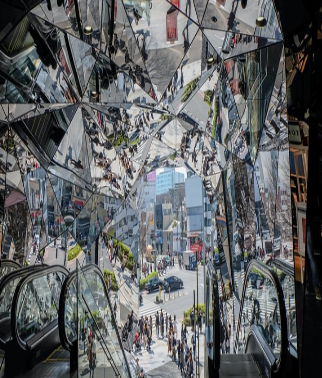"Zoom Fatigue" is a thing. Here’s what you need to know.
By: Megan Maurer, N.P.
While most aspects of daily living have come to a halt, one thing has exploded in recent months: videoconferencing.
Thanks to Zoom, Skype, Facetime, and other digital services, humans have stayed virtually connected to each other for work, school, socialization, and even medical appointments. In 2019, Zoom reported hosting 10 million virtual meetings; that number skyrocketed to 300 million since the pandemic and stay-at-home orders took effect in April. As a result, experts have identified Zoom fatigue - feeling tired, anxious, and restless due to too many video calls.
Inherent benefits of virtual communication exist: it can be easily accessible, time-saving, and fosters connection in unpredictable circumstances like weather or a public health crisis when getting together is not feasible. Services like Zoom have enabled remote learning, video conferences, different ways to complete research projects, and telehealth.
On the flip side, technology can cause a break in human connection, which has been occurring unconsciously for years. Humans rely on non-verbal cues when communicating – things that are unable to be detected on a video chat. This can create feelings of mental exhaustion, since our minds have to work harder to assess if others are understanding us.
Accessibility also plays a role – most digital services require a strong internet connection, and a device like a laptop, smartphone or tablet. An individual’s environment where there are distractions, fluctuating noise levels, and lack of privacy can also contribute to a person’s experience. The virtual world also eliminates boundaries that may have previous existed in an office or workplace, often making it difficult for some to “turn off” their jobs at the end of the day. This can all lead to mental exhaustion and fatigue.
There are ways to help prevent or alleviate some of that Zoom fatigue. To work around not being able to see a person’s body expression or non-verbal cues, try increasing the height of your screen to show your face, shoulders and chest. Make sure there is enough light on our face and try looking directly at the camera, rather than pan around the screen to look at all of the participants when you are talking. Reduce your background noise by muting your microphone and asking others to do the same. Use the normal etiquette as if you were attending a meeting or appointment in person.
Most importantly – take breaks! Turn the video off and, if possible, limit the number of Zoom or video conference sessions you participate in.
More research is being done on this topic given the current pandemic and continued social distancing guidelines. Most importantly – don’t allow video sessions to replace other ways you communicate – continue to call people on the phone, email, and text and if you’re feeling isolated - let someone know.
If you’re feeling mentally exhausted, Behavioral Health Partners is here to help.
{^widget|(name)IncludeContentWidget|(Document)7b5217a1-d3b9-45e0-a6d2-1b48b1b2f53c|(widget_displayname)Include+Content^}
References
Wiederhold, B.K. (2020). Connecting Through Technology During the Coronavirus Disease 2019 Pandemic: Avoiding “Zoom Fatigue”. Cyberpsychology, Behavior, and Social Networking. Doi:10.1089/cyber.2020.29188.bkw
Gray, L., Wong-Wylie, G., Rempel, G., & Cook, K. (2020). Expanding Qualitative Research Interviewing Strategies: Zoom Video Communications. The Qualitative Report, 25(5), 1292-1301. Retrieved from http:c:/users/14124/downloads/expanding_qualitative_research.pdf
Sugden, J. (2020, April 23). Zoom Fatigue Is Real; Hopes of using coronavirus lockdowns to tick off rainy-day jobs have proved empty, because our social lives are busier than ever. Wall Street Journal; New York, N.Y.
Miller, R. (2020, April 23). What’s ‘Zoom fatigue’? Here’s why video calls can be so exhausting. USA Today. Arlington, VA.
Keith Stein | 8/4/2020




